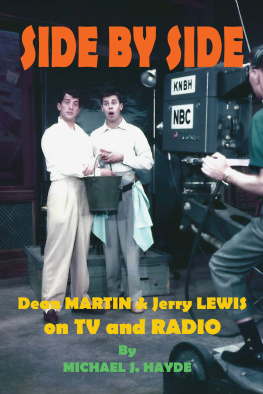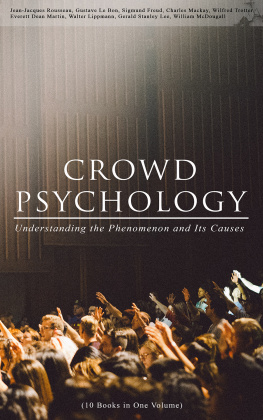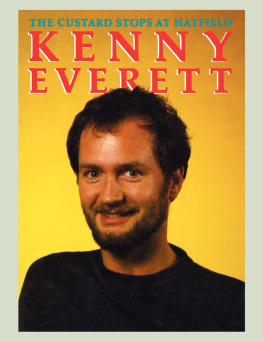The
BEHAVIOR OF CROWDS
A Psychological Study
by
Everett Dean Martin
Lecturer in Social Philosophy and Director of the Cooper
Union Forum of the Peoples Institute of New York
Publishers logo
HARPER & BROTHERS PUBLISHERS
NEW YORK AND LONDON
The Behavior of Crowds
Copyright, 1920, by Harper & Brothers
Printed in the United States of America
HW
FOREWORD
Since the publication of Le Bons book, The Crowd, little has been added to our knowledge of the mechanisms of crowd-behavior. As a practical problem, the habit of crowd-making is daily becoming a more serious menace to civilization. Events are making it more and more clear that, pressing as are certain economic questions, the forces which threaten society are really psychological.
Interest in the economic struggle has to a large extent diverted attention from the significance of the problems of social psychology. Social psychology is still a rather embryonic science, and this notwithstanding the fact that psychiatry has recently provided us with a method with which we may penetrate more deeply than ever before into the inner sources of motive and conduct.
The remedy which I have suggested in Chapter X deserves a much more extended treatment than I have given it. It involves one of the great mooted questions of modern philosophical discussion. It is, however, not within the province of this book to enter upon a discussion of the philosophy of Humanism. The subject has been thoroughly thrashed over in philosophical journals and in the writings of James, Schiller, Dewey, and others. It is sufficient for my purpose merely to point out the fact that the humanist way of thinking may provide us with just that educational method which will break up the logical forms in which the crowd-mind intrenches itself.
Those who expect to find a prescribed formula or ideal scheme of organization as a remedy for our social ills may feel that the solution to which I have comenamely, a new educational methodis too vague. But the problem of the crowd is really concerned with the things of the mind. And if I am correct in my thesis that there is a necessary connection between crowd-thinking and the various traditional systems of intellectualist, absolutist, and rationalist philosophy, the way out must be through the formation of some such habits of thinking as I have suggested.
E. D. M.
New York , October 10, 1919.
I
THE CROWD AND THE SOCIAL PROBLEM OF TO-DAY
Every one at times feels himself in the grip of social forces over which he has no control. The apparently impersonal nature of these forces has given rise to various mechanistic theories of social behavior. There are those who interpret the events of history as by-products of economic evolution. Others, more idealistic but determinists, nevertheless, see in the record of human events the working out of a preordained plan.
There is a popular notion, often shared by scholars, that the individual and society are essentially irreconcilable principles. The individual is assumed to be by nature an antisocial being. Society, on the other hand, is opposed in principle to all that is personal and private. The demands of society, its welfare and aims, are treated as if they were a tax imposed upon each and every one by something foreign to the natural will or even the happiness of all. It is as if society as "thing-in-itself" could prosper in opposition to the individuals who collectively constitute it.
It is needless to say that both the individual and the social, according to such a view, are empty abstractions. The individual is, in fact, a social entity. Strip him of his social interests, endowments, and habits, and the very feeling of self, or "social me" as William James called it, vanishes and nothing is left but a Platonic idea and a reflex arc. The social also is nothing else than the manner in which individuals habitually react to one another. Society in the abstract, as a principle opposed to individual existence, has no more reality than that of the grin which Alice in Wonderland sees after the famous Cheshire cat has vanished. It is the mere logical concept of others in general, left leering at us after all the concrete others have been thought away.
Much social thinking is of this cat-grin sort. Having abstracted from the thought of self everything that is social, and from the idea of the social all that has to do with concrete persons, the task remains to get pure grin and pure cat together again in such a way that neither shall lose its identity in the other. It is, of course, impossible to reconcile these mutually exclusive abstractions either in theory or in practice. It is often difficult enough, even with the aid of empirical thinking, to adjust our relations with the other people about us. But on the Cheshire-cat hypothesis, the social problem can never be solved, because it is not a real problem at all.
Since the individual is therefore a social being as such, and the social is just a way of acting together, the social problem does not grow out of a conflict between the self and an impersonal social principle. The conflicts are, in fact, clashes among certain individuals and groups of them, or elseand this is a subject to which social psychology has paid insufficient attentionthe social struggle is in certain of its phases a conflict within the personal psyche itself. Suppose that the apparently impersonal element in social behavior is not impersonal in fact, but is, for the most part, the result of an impersonal manner of thinking about ourselves. Every psychic fact must really be an act of somebody. There are no ideas without thinkers to think them, no impersonal thoughts or disembodied impulses, no "independent" truths, no transcendental principles existing in themselves and outside of human heads. Life is everywhere reaction; it is nowhere a mere product or a passive registering of impersonal forces. It is the organisms behavior in the presence of what we call environment.
Individual opinions cannot be tossed into a common hat, like small coins. Though we may each learn from the others, there is no magic by which our several thoughts can sum themselves up into a common fund of public opinion or super-personal whole which thinks itself, there being no collective head to think it. No matter how many people think and behave as I do, each of us knows only his own thought and behavior. My thought may be about you and what I judge you are thinking, but it is not the same as your thought. To each the social is nil except in so far as he experiences it himself, and to each it is something unique when viewed from within. The uniformity and illusion of identityin short, the impersonal aspect of social thinking and activity appears only when we try to view social behavior from withoutthat is, as objectively manifest in the behavior of others.










